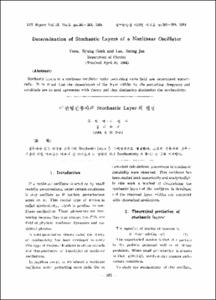경제적 환경규제수단의 실현가능성 제약요인
- Alternative Title
- The Feasibility of Environmental Market-Type Instruments
- Abstract
- 일반적으로 세계 각국에서 가장 많이 이용되?? 있는 환경규제수단은 명령지시적 직접규제방식이다. 그러나 명령지시적인 수단이 가지고 있는 문제점들 때문에 세계 여러나라에서는 시장원리를 적용한 경제적 또는 시장유인적 환경규제수단을 도입함으로써 환경규제를 개선하려는 노력을 기울이고 있다. 그러나 경제적 수단은 선진국의 경우에도 여전히 주된 환경정책수단이 되지 못하고 있으며, 경제적 수단을 채택하고 있는 많은 나라에서도 경제학자들이 주장하고 예측한 것과 같은 효과를 거두지 못하고 있는 것으로 분석되고 있다. 이 연구는 왜 경제적 수단이 채택되지 못하고 또 채택되더라고 효과를 발휘하지 못하는 요인이 무엇인가를 분석하고 이를 극복할 수 있는 방안을 모색하였다.
This paper examine the feasibility of environmental economic instruments, i.e., the manifold obstacles to an economization of environmental regulations. Although governments have been engaged in widespread environmental regulation for several decades, reliance on markets for pollution control is quite limited. Application of market-type instruments generally is different from the economist's view.
After having briefly defined meaning and types of economic instruments, this paper consider various factors which seem to play a role in the shortcoming of economic instruments. The first one, called ideological obstacle, is environmealist's view which considers environment as a non-tradable thing; then procedural obstacles linked many with budgetary principles and with the complexity of a process are pointed out; then we focus on more political obstacles, which explain the difficulties in finding support for an economization of environmental policies, from public actors as well as from target groups. Last we point out the regulatory culture as an context obstacle to market-type instruments.
This paper examine the feasibility of environmental economic instruments, i.e., the manifold obstacles to an economization of environmental regulations. Although governments have been engaged in widespread environmental regulation for several decades, reliance on markets for pollution control is quite limited. Application of market-type instruments generally is different from the economist's view.
After having briefly defined meaning and types of economic instruments, this paper consider various factors which seem to play a role in the shortcoming of economic instruments. The first one, called ideological obstacle, is environmealist's view which considers environment as a non-tradable thing; then procedural obstacles linked many with budgetary principles and with the complexity of a process are pointed out; then we focus on more political obstacles, which explain the difficulties in finding support for an economization of environmental policies, from public actors as well as from target groups. Last we point out the regulatory culture as an context obstacle to market-type instruments.
- Issued Date
- 1998
- Type
- Research Laboratory
- Alternative Author(s)
- Jung, Joon-Keum
- Publisher
- 사회과학논집
- Language
- kor
- Rights
- 울산대학교 저작물은 저작권에 의해 보호받습니다.
- Citation Volume
- 8
- Citation Number
- 2
- Citation Start Page
- 225
- Citation End Page
- 273
- Appears in Collections:
- Research Laboratory > Journal of social science
- 파일 목록
-
-
Download
 000002025293.pdf
기타 데이터 / 145.5 kB / Adobe PDF
000002025293.pdf
기타 데이터 / 145.5 kB / Adobe PDF
-
Items in Repository are protected by copyright, with all rights reserved, unless otherwise indicated.